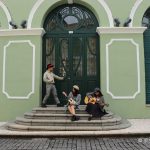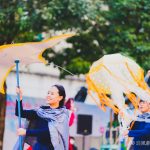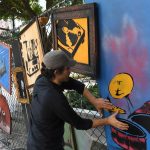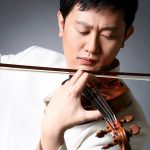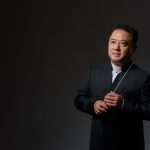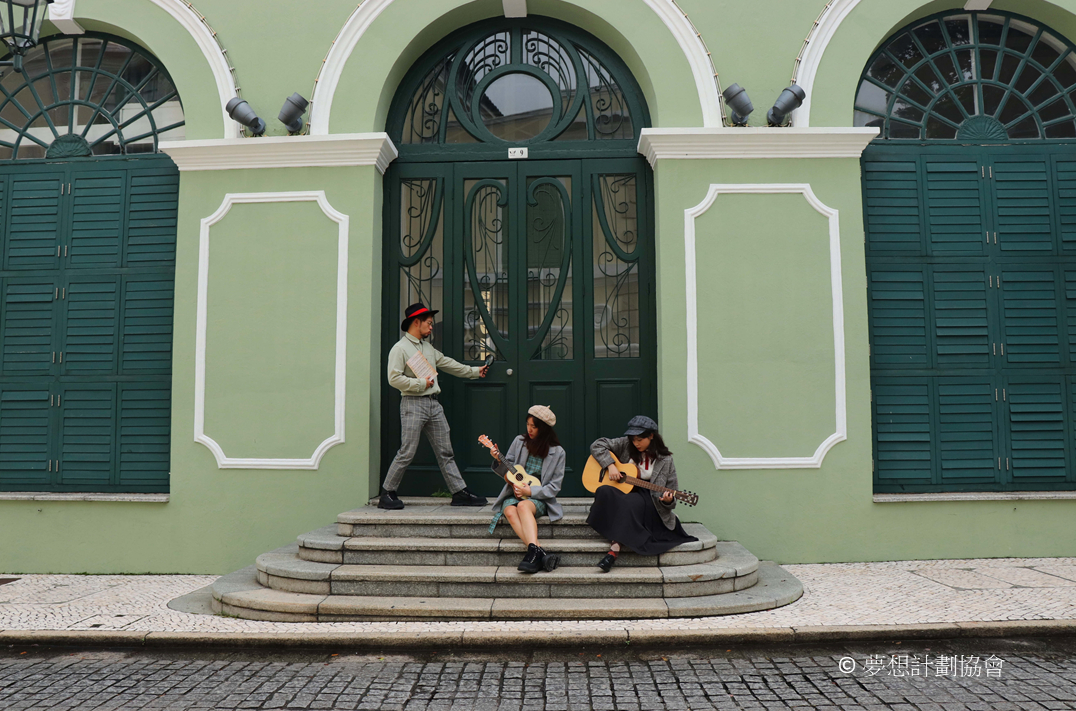 Journey in Musical Corners
Journey in Musical Corners
Organized by the Cultural Affairs Bureau (IC, from the Portuguese acronym), the “Macao International Music Festival – Music October” will present 7 outreach activities in a total of 15 sessions, including masterclasses, workshops, pre-show talks, exhibitions, outdoor performances and charity sessions, bringing music to the community in autumn.
In this year’s Festival, all outreach activities incorporate innovative ideas, offering the audience a new experience. The outdoor performance “Journey in Musical Corners” will allow participants to experience different types of music such as Chinese music, Western music, a cappella and pop originals, reaching into corners of life beyond the stage. The journey features two themed routes—the “Detective Dreamer” and the “The Musical Fantasies of Keikei and Kwong”, which take the public to visit the Historic Centre of Macao and to walk through the streets and lanes in Taipa with music.
The musical art installation “Interactive Musical Graffiti” created by João Oliveira, an experienced local sound engineer, will be exhibited at the Leisure Area of Lok Yeong Fa Yuen Building and the open space adjacent to the Flower City Park in October and November, respectively. The graffiti on the canvas turns into “musical instruments” and become audible interactive devices, allowing the public to play and present a wonderful musical feast. João Oliveira will also conduct the “Musical Installation Workshop” at the Xian Xinghai Memorial Museum and teach participants how to make interactive installations.
Violinist Chen Xi, a graduate from the Curtis Institute of Music and the Yale School of Music who won a silver medal at the International Tchaikovsky Competition at the age of 17, is a professor at the Central Conservatory of Music. In the “Violin Masterclass with Chen Xi”, he will give guidance to students to improve their performance skills. The workshop Cantonese Music “Sifoguk” will introduce the characteristics of Cantonese music and related instruments such as the qinqin, yehu and xiao, as well as present familiar Cantonese music, classical music with new tunes and even pop songs. In addition, the participants will be invited to perform and exchange with the musicians of the Cantonese Music Assembly. Limited seats for observers are available for the two activities mentioned above. Interested parties are welcome to register.
In the “Pre-show Talk: Virtuous and Pastoral Music” at the Auditorium of the Macao Museum of Art, the Music Director and Principal Conductor of the Macao Orchestra, Lu Jia, will analyse Saint-Saëns’s Violin Concerto No. 3 and Beethoven’s Symphony No. 6 before the concert, guiding the audience to explore the pastoral scenery through music. In order to further promote the charm of music in different social sectors, charity sessions “Contemporary Meets Tradition – Cantonese Music Assembly” will be available for social welfare organizations and schools on 22 October, allowing the public to deepen their understanding of Cantonese music. For school participation, please contact Ms. Tang through tel. no. 6688 2581 or email hi@artwindbox.com; for participation of social welfare organizations, please contact Mr. Lei through tel. no. 8399 6872 or email ctlei@icm.gov.mo.
IC will strictly follow the relevant anti-epidemic guidelines of the Health Bureau and implement appropriate measures for cultural activities. Registration for the abovementioned activities can be made from 10am on 23 September. Seats are limited. If the number of registrants exceeds the maximum of participants, the selection will be made by drawing lots. Interested parties can register online through the IC’s “Activities Registration System” at www.icm.gov.mo/eform/event. For enquiries, please email outreach@icm.gov.mo or contact IC through tel. no. 8399 6699 during office hours.


